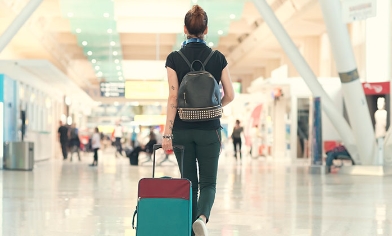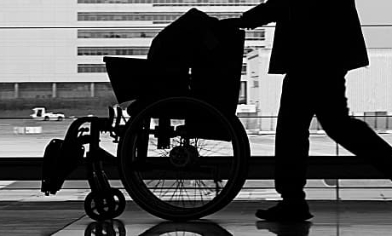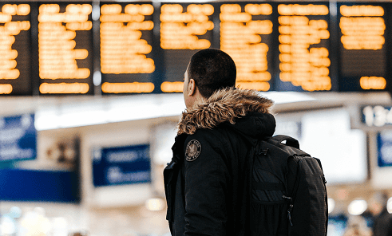The nation needs an affordable holiday
If the UK public was ever due a holiday, it’s now. We’ve weathered the storm of Covid-19 together, with all its travel restrictions and uncertainty. And now, as we get back into the normal routine of our busy lives, living costs keep spiralling upwards.
But even as budgets tighten, it seems UK holidaymakers are prepared to wait no longer to satisfy their travel cravings. In a Post Office Travel survey of over 2,000 people, 51% told us they’d already booked a summer holiday for 2023 and 22% planned to do so soon.
So what about travel hacks to make holiday funds go a bit further? When we asked which tricks respondents rely on, we found some money-saving tactics were called on often while others were being underused. We’ve shared a wide selection here to help you make the most of your much-deserved break without breaking the bank or compromising on the experience.
Booking your trip
The time you can make the biggest saving on your trip abroad is when you book your travel. And, for 45% of those we surveyed, booking early was a must.
Flights and accommodation often increase in price the closer you get to the time of departure or stay. While you may find a last-minute deal here or there if space hasn’t been sold, this isn’t a reliable booking method. But there are a few steps you can take to bring the cost down.
Compare prices
A top travel tactic for many of our survey audience was the use of price comparison sites and apps. Comparison platforms such as Skyscanner, Kayak and momondo make it easy to find the best deals on flights, accommodation and car rentals.
Airline aggregators are a go-to for 40% of our survey audience when comparing flights, while 35% use similar tools to see how different accommodation options compare.
Set up price alerts
Just 16% of respondents in the survey said they monitor and only buy during sales. However, if you set up pricing alerts for flights and accommodation, they’ll do the monitoring part for you.
Enter your desired travel dates and destinations and these tools will automatically update you when the price drops or deals become available that might suit you. Just buy when the price is right.
Be flexible
Travelling at off-peak times is often cheaper than doing so during busier periods. Checking nearby airports may also reveal cheaper flights or more convenient routes. And opting for less-in demand locations that offer a similar experience might make your money go further too.
On the flights front, 28% of those we asked said they book off-peak times, such as early weekday mornings. And 30% said they keep their options open on where to visit.
If you’re flexible too, our City Costs Barometer, Holiday Money Report and Long Haul Report can help you find the best-value places to visit.
Take advantage of rewards programs
Join loyalty programs offered by airlines, hotels and travel agencies to earn points you can redeem against future bookings. Just 7% of survey respondents said they save up Air Mile points to book against flights, suggesting there’s lots of scope to save going unused.
Choose alternative accommodation
If you fancy something other than a traditional hotel or their prices don’t suit your budget, consider options such as holiday rentals, hostels, or bed and breakfasts. Websites like Airbnb and Booking.com offer a wide range of affordable and unique stays.
Stay outside city centres
It’s usually the case that city centre prices are higher than in the surrounding areas. So if you’re looking for more budget friendly digs, start your search there. Check online for public transport links or bike rentals that will make it simple to reach the main attractions in the city itself.
Other essentials to sort out early
Pay on your credit card
When you book your trip, consider paying on your credit card. It won't save you money but may offer you protection if anything goes wrong with your airline, accommodation provider or travel operator. If you do choose to pay in this way, it's best to pay off your credit card balance early to avoid high interest charges.
Buy travel insurance when you book your holiday
Again, while it’s not a cost-saver, it’s important to take out travel insurance for your trip. It can protect you from unexpected and potentially high costs if something goes wrong. And, if you buy it when you book your trip it, you’ll be protected if certain things prevent you from going.
Buy your travel money in advance
Buying travel money at the airport can be much more expensive than getting it in advance. And if you buy at a time when the exchange rate is favourable, you can lock in that saving. Only 13% of those surveyed say they do this, so there’s the potential for more savings.
Even as the world becomes increasingly cashless, it’s wise to have a supply of holiday cash. This is useful for a range of minor expenses and, if kept separately, can get you out of a tight spot if your cards go missing.
Getting ready to go
With your trip booked, there are a few steps you can take when you’re preparing to travel that could save you money both while you do and after you arrive.
Pack smart and light
Minimise baggage fees by packing only the essentials and sticking to your airline's luggage restrictions. 18% of our survey respondents said they make use of their full hand baggage allowance to keep the weight of their hold luggage down.
You can limit the number of items you take by packing clothing that can be mixed and matched for versatile outfit combinations. And wearing your heaviest clothes to the airport – something 9% of respondents said they do – can save precious grams in your hold luggage.
Travel-sized toiletries can be pricey for the amount they contain, but you may be able to transfer the contents from larger containers into smaller ones. Or consider buying the items you need when you arrive.
Tell your mobile company you’re going away
They’ll give you options on the cheapest way to use your phone abroad, especially if you’re travelling outside the EU.
If you’re worried about the cost of accidental downloads, keep your phone in ‘airplane mode’ throughout your holiday or turn off data roaming in your device settings. Just 9% of our respondents said they use airplane mode in this way, leaving the rest open to high charges if their destination isn’t covered in their data allowance.
Download whatever you can in advance
Another way to avoid data roaming charges is to download a map of the area you’re visiting in a maps app that will work offline. The same goes for translation apps. You can download a language in dictionary form so that you can look up words and phrases without having to go online.
Only 7% of those we surveyed said they do this, but data costs can soon add up if you don’t. We’ll share some more tips on avoiding these costs later.
Finally, if you like to listen to music, download as much of it onto your chosen player as you can so that you’re not having to eat into data just to have something in your ears.
Bring your own snacks
Avoid costly airport or train station food by packing some snacks and reusable water bottles. This will not only save you money but also ensure you have a quick bite whenever hunger strikes.
If you don’t want to pay for water after you pass security, keep an empty bottle with you and fill it up on the other side. 11% of those who took our survey say they do this, so why not join them in making savings?
See if you have a lounge pass
While it’s not strictly a cost-saving measure, some credit cards or travel insurance policies come with access to airport lounges. And if it’s the kind where you can get free food and drink, this too can save you loads on the price of snacks in the airport.

Eating out, in and together
Eat like a local
Restaurants and cafés in tourist areas are notoriously expensive, so stay off the main drag when you’re hungry.
Just 11% of those responding to our survey said they book restaurants and bars away from the tourist areas. Yet you’ll find the food is cheaper (and often more enjoyable) if you walk five minutes around the corner to a café or bistro full of locals.
And only 14% of respondents said they ask locals for restaurant and bar recommendations, which is a great way to find hidden gems. If you’re not sure where to try, find a review website like TripAdvisor and look up restaurants online.
Cook like you’re at home
If you’ve got the facilities to make an easy meal, buying supplies at a supermarket will almost always save you money versus eating out. Around a fifth (22%) of those we surveyed said they do this while away to avoid raiding the hotel minibar.
You can also try your hand at cooking local dishes and trying out the regional food for a fraction of the price of a restaurant. And you can make yourself a packed lunch for your excursions the following day.
Prefer your home-cooked meal to be prepared for you? Travelling Spoon is a site dedicated to pairing you with vetted locals who’ll cook for you – whether that’s local delicacies or their own creations.
Dine with others
Our survey also found that few people are using social eating apps to enjoy shared dining experiences like attending local food-based events. Just 3% of those we asked do. An opportunity missed?
One such app is EatWith, which enables you to join events hosted by locals in a huge number of locations all over the globe. These can range from sampling local, home-cooked dishes to food tours and even cookery classes – all while cutting back on the cost of eating out.

Getting around
Taxis can cost quite a lot of money, especially when you’re travelling in tourist hotspots. Rental car costs can add up too. But there are other ways to get around for less.
Use local transportation
Public transport is almost universally the most cost-effective way of travelling around, yet only 18% of our survey respondents say they use is whenever and wherever they can.
It might be intimidating to navigate the buses and metros of a new city or the trains that connect countries, but it’s a rewarding experience and can save a few pennies.
Share the ride
Uber and its competitors operate in a great many cities internationally and can often be cheaper than metred taxis and taxi firms.
And carpooling apps such as BlaBlaCar, where you pay a nominal fee to share a ride with others, can be even more cost effective than solo fare rideshare apps. Just 2% of those who completed our survey make the most of these potentially cost-saving tools.
It’s always imperative to think safely first. Never get into unlicensed cars or those where the driver does not carry identification of their status as a professional driver.
Cross country options
Don’t leave your travel to be an afterthought. Cross-country and international travel options can be a holiday in themselves.
For instance, train travel within the Schengen area for UK citizens means you can see many EU and other countries without needing anything more than your passport. Even now the UK has left the EU, travellers with a UK passport will be able to stay in the area without the need for a visa for a maximum of 90 days in any 180-day period. This may be spread over several trips. What counts towards this 90-day quota can differ by EU country, so check the rules particular to your destinations. Outstaying this maximum may result in bans on entry to the Schengen area, not only the country you are visiting.
Other money-saving ideas
Embrace free activities
Discover free attractions, parks, and events at your destination. Museums often have specific free entry days, and cities frequently offer free walking tours. Check local websites, social media, or ask your accommodation provider for recommendations.
Stay connected for less
We’ve already shared some ideas for avoiding roaming charges. Another is buying a local SIM card or using Wi-Fi hotspots to stay connected while you’re travelling. Only 19% of respondents in our survey said they piggyback local Wi-Fi (though the real proportion may be higher).
If you’d like to connect to free Wi-Fi in an establishment you’re visiting but don’t know the password or how to ask for it, you may be able to find it in the comments on Foursquare.
Work your way around
If you’re travelling for an extended period, one way to budget as you go is work in some of or all the places you visit. There are plenty of opportunities to top up your travel fund while getting a first-hand taste of living and working in a new country.
Possible jobs include bar worker, waiting staff, au pair, tour guide, ski resort staff, farm worker or cruise ship staff. There’s also big demand for people able to teach English abroad, particularly in Asian countries. The best way to secure such a role is to first get a Teaching English as a Foreign Language (TEFL) qualification. But there are some positions that don’t require one and many schools will even pay for your flight and help you with your accommodation.
Make sure you’ve got the necessary visas for your destinations and that your travel insurance policy will cover working in another country.
In summary
Travel is back on the table and our appetite for it’s greater than ever, even if our budgets are more constrained. By following these travel hacks and tips, you can potentially save some money when you go, stay organised and make the trip one to remember.















